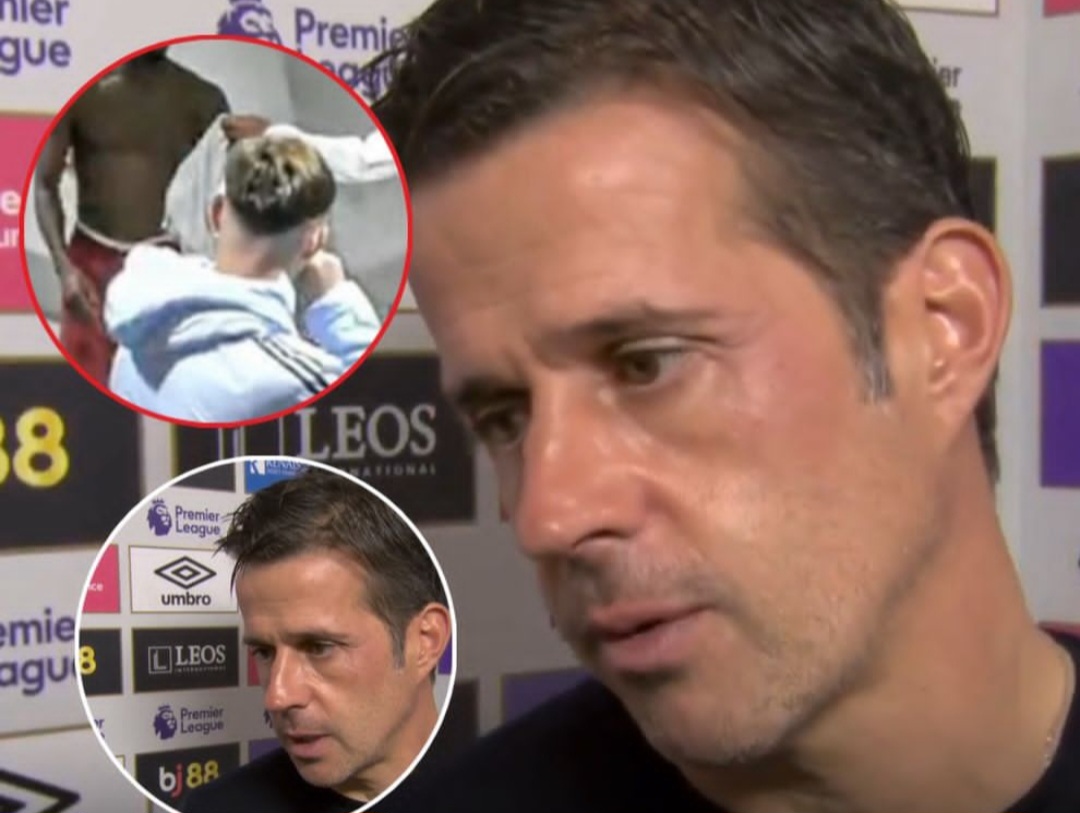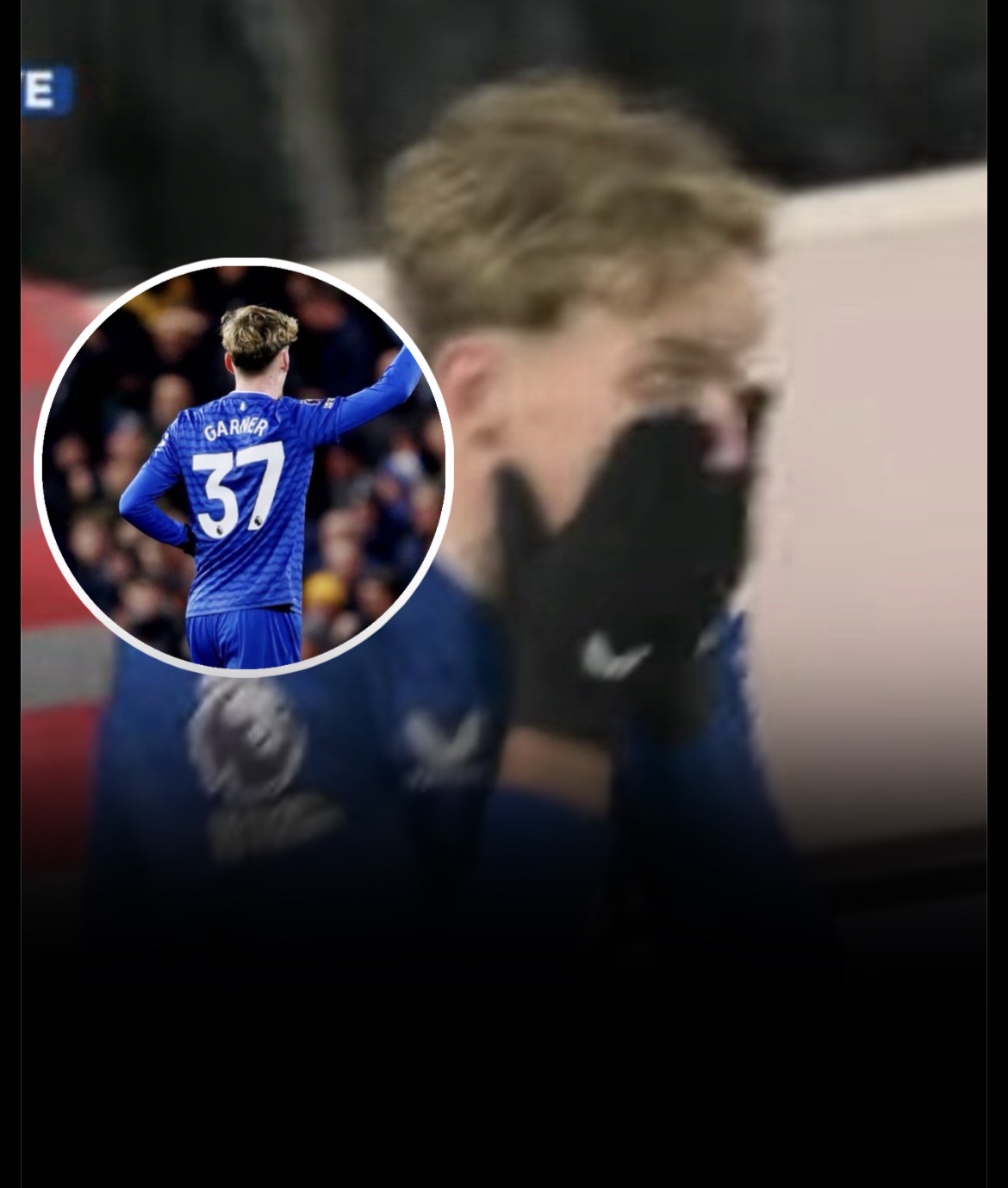MARCO SILVA TOLD PLAYER, ‘YOU’LL NEVER PLAY FOR FULHAM AGAIN FOR SWAPPING SHIRTS WITH BOURNEMOUTH STAR AFTER BIAS
“YOU’LL NEVER PLAY FOR FULHAM AGAIN!” — Marco Silva Rages After Shirt-Swap Scandal? The Shocking Twist From Bournemouth That Has Fans FURIOUS
Hold on to your scarves — drama at the Vitality Stadium didn’t end when the final whistle blew. What looked like a textbook Premier League comeback — Bournemouth 3, Fulham 1 — has exploded into a social-media firestorm after pictures and clips began circulating showing Fulham winger Alex Iwobi exchanging shirts with Antoine Semenyo. Fans are calling it “the ultimate betrayal.” Viral posts claim manager Marco Silva lost it and told Iwobi he’d “never play for Fulham again” — but before you retweet, read this: while the comeback and Semenyo’s starring role are well documented, the incendiary quote and the locker-room meltdown remain a rumour, unconfirmed by mainstream outlets.
The match everyone’s talking about — the facts
Let’s start with what we know. Fulham took the lead through Ryan Sessegnon and looked comfortable — until Antoine Semenyo decided to put on a clinic. Semenyo (two goals) and a thunderbolt from Justin Kluivert ripped the game away from Fulham in the second half, turning a 1–0 deficit into a 3–1 Bournemouth win. The result pushed Bournemouth up the table and left Fulham staring at a bitter defeat. Those core match facts are reported across major outlets.
Marco Silva’s post-match comments were typical manager-speak about “individual moments” and fine margins costing his side — nothing in those official quotes matches the dramatic “never play again” line that’s now trending. Broadcasters carried Silva’s reaction, but there’s no verified record of him issuing an outright banishment statement in public.
The image that started the inferno
Minutes after the final whistle, fan-shot clips and screenshots began to surface. The most shared footage shows Alex Iwobi walking toward Antoine Semenyo and appearing to swap shirts — the classic post-game gesture of mutual respect between opponents. For many neutrals, it’s a harmless, even noble, act. For a growing number of furious Fulham supporters it’s a slap in the face — trading shirts with the player who just sank your team.
Why did a simple swap trigger such intense outrage? Context matters: Semenyo didn’t just score — he changed the match single-handedly. In a game where Fulham felt wronged by missed calls and desperate for a reaction, seeing one of their own exchange shirts with the opposition’s villain (in their eyes) looked like fraternising with the enemy. The result: social feeds lit up with demands for punishment, and a rumour — a wild one — that Silva had privately told Iwobi he’d “never play for Fulham again.” That claim has spread like wildfire, but hasn’t been corroborated by reputable outlets. (Emphasis: unverified.)
“Respect” or “Disrespect”? Why fans are split
This is where tribalism in football shows its teeth.
The “Respect” camp argues: players swapping shirts after a tough game is football culture. Iwobi’s gesture is sportsmanlike — showing appreciation for an opponent’s performance, nothing more. Plenty of top pros do the same after big matches; it’s a tiny, human moment in a machine of tactics, contracts and club politics.
The “Disrespect” camp screams betrayal: in a game Fulham lost because of Semenyo’s brilliance, why is a player wearing a Bournemouth shirt seconds later? Some fans see it as prioritising personal fame and memorabilia over the team’s cause — and in social media time, that looks unforgivable.
Both reactions make sense emotionally. But emotions are not evidence — and both sides are using the same shaky online snippets to build vastly different stories about Iwobi’s motives and Silva’s response.
Did Silva actually ban Iwobi from playing? Here’s what reporters say
Multiple broadcasters and post-match reports streamed Silva’s press conference and reaction pieces, and the manager’s publicly available comments focus on performance, key moments, and refereeing decisions — not on an immediate public sacking or a dramatic player exile. Major outlets that covered the match (including match reports and post-game analysis) documented the loss and Silva’s disappointment — but none recorded an on-the-record “you’ll never play for Fulham again” quote. That explosive line appears to be circulating via fans and anonymous social posts rather than through traditional reporting.
That doesn’t mean nothing happened behind closed doors. Managers are human, tempers flare, and heated private words can — and often do — stay private. But journalistic standards mean we require attribution and direct sourcing before printing such a claim as fact. Right now, the most responsible reading is: viral claim + no reliable confirmation = unproven allegation.
If Silva did snap — what would it mean?
Play along with the hypotheticals for a moment. If Silva truly did tell Iwobi he’d “never play for Fulham again,” the ramifications are significant:
1. Dressing room split: Public discipline of a senior, well-liked player can fracture squad unity. Teammates often rally around players perceived to be unfairly singled out.
2. Transfer market consequences: A player told he’s not wanted may find his market value tanking — or the club might expedite a sale to avoid internal friction.
3. Managerial firepower: Silva’s willingness to make a dramatic public statement could be read as an attempt to reassert control, discourage perceived disloyalty, and send a message to the rest of the squad — “we stand for team first.”
4. PR disaster: Conversely, if fans view the punishment as disproportionate, club leadership may come under pressure to intervene.
All that said, these are what-ifs. Football is full of moments that look huge on social media but diffuse in the daylight of verified reporting.
Why clubs clamp down on social media moments
Clubs these days are hyper-aware that a 10-second clip can define a narrative for weeks. Managers and PR teams often prefer that the internal handling of incidents remain private to prevent escalation. Remember — earlier this season clubs have disciplined players for social posts, leaked training content, and other seemingly innocuous behaviour that got amplified. Publicly admitting to an internal ban would be unusual unless the club wanted to use the moment as a deterrent.
So: could Fulham quietly have sanctioned Iwobi? Absolutely. Would they publicly declare it in dramatic terms? Less likely. The club’s official channels published the match report; they’re yet to issue any statement about disciplinary action relating to a shirt swap.
The bigger picture: players, personalities and post-match rituals
Footballers are celebrities with brands, memorabilia and personal relationships that survive 90 minutes of hostilities. Shirt swaps are part of that world. For players who grew up idolising opponents, swapping shirts is a lifelong moment — an emotional souvenir. Clubs, meanwhile, see the game through a lens of competition, revenue and loyalty. That clash — personal ritual vs club culture — is where these storms are born.
Verdict: what you can trust — and what to treat as rumour
Trust: Bournemouth 3-1 Fulham, Semenyo’s brace that turned the match — verified across Reuters, Guardian and club reports.
Unverified: Marco Silva telling Alex Iwobi “you’ll never play for Fulham again” specifically because of a post-match shirt swap. That explosive quote is circulating on social platforms but has not been corroborated by mainstream sports journalism or quoted by Silva in official media.








Post Comment